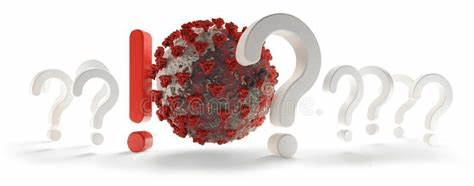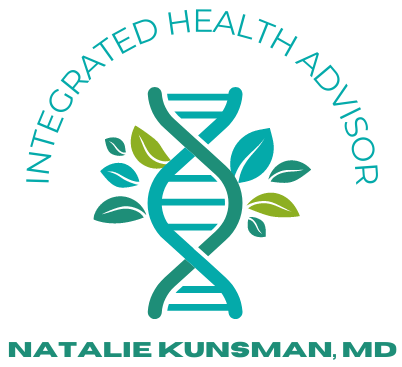At no point in my near 30-year career has there been more wrestling with the medically ethical principles driving shared-decision making between patients and myself. I also have been a patient as most physicians have been at one point or another. As I try to make sense of the fractured approach during the pandemic, I am mindful of the cast of characters in this paradigm, and why and how it is difficult to always have all these characters on the same page. Since I specialize in functional medicine, the main character is the patient, and central to the decision-making is the individual rights and medical needs that the patient has. The simplest explanation of the medical ethics speaks to the two parties who create a voluntary agreement, that of the patient and the physician. For the rest of this discussion, we can assume that “physician” will also stand for other providers such as physician assistants, nurse practitioners, and licensed providers. During this pandemic, however, we have identified that we also have family members, insurers (third party payers), health systems, local governments, school systems, employers, the federal government, health care reporters, and governmental health care advisors not only weighing in, but imposing and mandating health care choices. The entry of so many players in the medical decision-making field is at the heart of criticisms of how the pandemic is being managed. While each of the above-named groups may be poking fingers at the other, we must remind ourselves of the medical philosophical principles that have guided medical decisions all throughout the history of organized medicine. And those bound by those principles, to reiterate, are the patient and the physician. Is a governmental leader, a hospital administrator, an employer, a health care reporter, an insurer, or even a family member bound by these principles? No. Since they are not educated, trained, or bound by these tenets, could this be the reason they do not understand the absolute burden to those who are?

The four major principles, in no hierarchy, include: autonomy, beneficence (benefit), non-maleficence (not doing harm), and justice. While we physicians may not always spell out these terms in our notes, they are the underpinnings of how we achieve the correct approach or decision for the patient. Autonomy in this regard is clearly speaking to the patient and the ability to make his/her own decisions rather than being influenced by someone else. At the core it is a freedom and independence. However, to be fully independent a patient really needs to fully understand and be informed of options and consequences of the decision. In the case of a surgery, a patient would need to know the benefits and the potential drawbacks of doing the surgery. Informed consent should also include the narrative of avoiding the surgery. A sound judgment cannot happen in a void of information. There are obvious caveats to this approach if it involves a patient who is not competent by age or by cognitive capacity, and in those cases, a surrogate can be identified to decide on behalf of a patient. There is a qualification regarding a patient’s autonomy in that if there could pose a direct harm to someone else, the patient’s autonomy must be reconsidered or reworked. And it is in this regard that the public safety entities and governmental “leaders” were gaslighting and falsely stating and adding conjecture, that if someone did not receive a mRNA vaccine that person was creating harm to someone else. The further conjecture that the vaccine was harmless to recipients, further imposed upon a patient’s ability to have any autonomy in decision making. Even in the paternalistic argument to decide something on behalf of the patient typically is still at the center of doing something in the best interest and not creating harm. As we reflect, the patient was not at the center and not always avoiding harm. Our first bioethical principle became invalid. In fact, the physician in the physician-patient relationship was completely removed from the equation so that you now had paired combinations of patient-employer, governor (or community administrator)-patient, schoolboard-patient, family member-patient associations imposing decision making. None of those entities has a true ethical obligation to the patient. None of those entities even had understandings of potential harm to the patient and its implications of rendering that person incapable of serving their community or family after a catastrophic outcome. If we were assessing “the good of the community” in this process, the totality of that argument would need to be considered. I will use myself as a patient as an example. If there was any truth to the assertion that the vaccine stopped transmission of the disease, and if I got the vaccine, I would stop transmission of the disease, would that be a greater good in the long run than the vaccine disabling my condition and then I no longer could help thousands of patients any more nor take care of my family’s needs with my income? “Greater good” is a slippery slope when taking away a patient’s autonomy. Even worse is taking away someone’s autonomy by omitting facts, using hyperbole, or skewing data to push an agenda.
Beneficence, another ethical principle, is heavily challenged during the past two years. Paraphrasing excellent work of others beneficence calls on the physician to act for the benefit of the patient. These actions and decisions also prevent harm, remove conditions that can cause harm, and save people from danger. Physicians are dutiful to defend the rights of other and promote the welfare of all. Just as there have been significant abuses of human subjects during Tuskegee experimentation and WW 2 experimental atrocities that depleted large patient populations of autonomy and choice, they offered no benefit to promote the welfare of a patient. Any physician engaged in behaviors that have gone against benefit or prevention of harm wittingly, have committed crimes against humanity and breached all medically ethical principles. In these past two years there was much uncertainty in the initial science and facts of the coronavirus leading the charge in the pandemic. Equal uncertainty existed in the newest technology of how mRNA would be received in a human organism and whether it was the right strategy using a preventive tool while in the throes of active disease spreading. Whether or not there would be benefit (and what kind of benefit) with negligible risk was still uncertain but not presented with humble veracity. The hubris surrounding early data and unblinding of the trials gave false claims to this superior weapon against this virus. And yes, the preventive tool converted into a treatment tool to lower deaths and hospital stays. Imbedded in the health care ethics is the principle of “role fidelity.” This simply is stating that one must stick within their own scope of services. One must not “practice” in ‘an area in which they are not licensed.’ Many messages were sent, but by whom? Did those messengers have the proper roles to be sending information to help patients make informed decisions? Or did these messengers bear false witness and stretch their roles in such a way that gave the public an opinion that the messages were absolute truths? By now you can gather from my presentation and questioning the leanings I have. I, as a physician, have an absolute obligation ethically to present information, or lack of it, in an understandable way, with the purest of intentions, to help a patient achieve optimal health. I have lived in this world with all of you and had to fend off misinformation, enticements, threats, and propaganda just to be able to do my job and remain bound to my ethical duties. Do not forget that very few of those in the very persuasive fields have not taken oaths or can be held in front of governing boards defending licensure. It is easy to decree an edict, a mandate, and tell a story so one-sided that it presents as a great benefit to all when you have no code of conduct to defend. These tactics are what has given the “used car salesman” a bad rap. There must be a true benefit to the patient with the principle of beneficence, and not to a profiting entity.

It is part of the Hippocratic Oath that “above all else, do no harm.” Nonmaleficence is the principle of not doing harm. In the Hippocratic era it supported the rules of ‘do not kill, do not cause pain or suffering, do not incapacitate, do not cause offense, and do not deplete others of the goods of life.’ In many approaches to the patient encounter I am quite conservative in the fact that I use the least invasive strategy to promote a patient’s wellness. “Doing no harm” is one of those principles. In the functional medicine arena, conservative healing approaches are at the basis of attacking the root cause. If the body has ways to heal itself, optimize that first and advance risks of treatment as the condition dictates. That said, the mRNA strategy, and even the end-stage hospital treatments really threw a bomb in people’s systems. The reminder is that these tactics were of emergent authorization and use and barely vetted for safety or efficacy but sold very confidently by those not bound by medically ethical principles. Was that truly avoiding harm? By now most have heard of the VAERS data which reports the vaccine injuries and deaths. Note that this principle states to “do no harm.” It does not imply that you can do some harm if the greater percentage is benefit. And who is measuring the statistics of benefits and harms? How to we rectify hiding data on those existing treatments that provided benefit? A physician in this position who hid any life-improving treatment that also posed no harm would be up against penalties and licensure revocation. Again, who is bound by medically ethical principles, versus those who imposed the policies and mandates in this current pandemic? Since I adhere to quite an individualized approach to treating and advising a patient, any harm is too much harm.
Our fourth discussed principle of medical ethics is that of justice. Justice is exactly as the name implies. The challenges posed in the beginning part of the pandemic with no treatments accepted until the end-stage hypoxic and pneumonia phase were very troubling with deciding any equitable distribution of resources or prioritizing based upon any type of fairness. Then the emergent vaccines, which were not vetted through the usual trial phases and lengths of time but offered hope, started rolling out to select groups and this “distributive justice” was really held to task. I think that much of the distribution made sense early on to offer to the vulnerable populations and those at highest risk of continued exposure. This wound up being those patients with risk factors, advanced age, and health-care workers. We are in America, and patients have the choice to receive or decline a treatment of prevention. Conflicts started arising, as I can professionally and personally attest to, involving the external forces and pressure from hospital systems, third party payers, and public safety agencies, which impacted clinical decisions of ordering tests, allocating resources (vaccines and monoclonal antibodies, for instance), prescribing medications (still controversial to date), or seeking consultations. Fairness to each patient is paramount especially when there are conflicts in which a particular treatment may be chosen over another if a physician stands to benefit or gain financially or otherwise. This seems obvious, but in this pandemic where free enterprise and pharmaceutical companies were those entities who stood to gain financially, and their oversight administrators added to the mandate, we see where a huge controversy now exists between the patient and physician. The physician in this situation becomes the go-between and the licensed provider who helps the patient make a truly informed decision. However, if that licensed, ethically bound physician is receiving mandates, policies, and oppression from employers and payers to skew a decision to financially benefit the institution, there is no justice to that patient. That patient now has a breached relationship with the physician. The physician is “left with the bag” and held accountable for the breach. Unlicensed and unbound entities had no ethical principles violated, since they are not held to ethical principles. This is a quagmire that many physicians found themselves in as a provider AND a patient. If significant consequences of job termination, ridicule, and persecution dominated the clinical field, did the patient ever have a chance of receiving unbiased scientific evidence to be properly informed? Was justice to that individual patient served? Who accounts for those bad outcomes of that patient’s decision? Is fear and intimidation ever ok to bring to the ethical table in such discussions of medical treatments? Should that oppression be disclosed? Should the physician exempt from the discussion, knowing there is bias?

Nothing is more difficult than when these moral concepts clash with one another. Through this pandemic there may have been a good-faith belief that a treatment or preventive tool was beneficial, but the patient’s religious belief system may have conflicted with the decision to move forward with a treatment. Autonomy clashed with the potential beneficence, and these issues will come up repeatedly. Justice in the allocation of resources was also assessed numerous times in this pandemic, as well as the truth-telling that is absolutely required to ethically do right by an individual and a population. If there is any possibility of profiteering being at the heart of a clinical decision, I passionately believe that a physician needs to disengage from the relationship and remove this bias. Coercion is not informed consent and should never have a place in the physician-patient relationship. If the only pearl we have learned from this article is that the physician-patient relationship is sacred and may have been tampered with in several ways during this pandemic, then we can correct what we no know, and not let it happen in future years to come. I remind all readers to seek the opinion from those ethically bound to serve you primarily.






Прямо здесь вы найдете Telegram-бот “Глаз Бога”, позволяющий проверить данные о человеке через открытые базы.
Инструмент функционирует по фото, используя актуальные базы онлайн. Благодаря ему осуществляется 5 бесплатных проверок и глубокий сбор по фото.
Сервис актуален на август 2024 и охватывает мультимедийные данные. Сервис сможет проверить личность в соцсетях и покажет результаты за секунды.
https://glazboga.net/
Такой сервис — выбор для проверки граждан через Telegram.
Здесь доступен сервис “Глаз Бога”, что собрать данные по человеку из открытых источников.
Сервис активно ищет по номеру телефона, обрабатывая публичные материалы онлайн. Благодаря ему доступны бесплатный поиск и детальный анализ по запросу.
Платформа проверен на август 2024 и включает аудио-материалы. Глаз Бога гарантирует узнать данные по госреестрам и покажет результаты мгновенно.
https://glazboga.net/
Это бот — помощник при поиске граждан удаленно.
На данном сайте вы можете отыскать боту “Глаз Бога” , который может проанализировать всю информацию о любом человеке из публичных данных.
Уникальный бот осуществляет проверку ФИО и предоставляет детали из онлайн-платформ.
С его помощью можно пробить данные через официальный сервис , используя имя и фамилию в качестве начальных данных .
найти человека по номеру телефона
Система “Глаз Бога” автоматически анализирует информацию из открытых баз , формируя подробный отчет .
Клиенты бота получают 5 бесплатных проверок для ознакомления с функционалом .
Платформа постоянно совершенствуется , сохраняя высокую точность в соответствии с требованиями времени .
Размещение видеокамер поможет контроль территории в режиме 24/7.
Современные технологии обеспечивают надежный обзор даже при слабом освещении.
Вы можете заказать множество решений оборудования, идеальных для дома.
сколько стоит установка видеонаблюдения
Качественный монтаж и консультации специалистов делают процесс максимально удобным для любых задач.
Оставьте заявку, чтобы получить оптимальное предложение по внедрению систем.
Chcesz znaleźć gry przeglądarkowe w tym miejscu?
Zapewniamy wszystkie kategorie — od RPG do sportu!
Graj w przeglądarce na komputerze lub telefonie .
Popularne tytuły stale rozwijane.
https://www.preparingforpeace.org/najlepsze-kasyna-online/
Dla dzieci , zaawansowane — wybór na każdą okazję!
Sprawdź już dziś .
Наш сервис поможет получить информацию о любом человеке .
Укажите имя, фамилию , чтобы получить сведения .
Бот сканирует открытые источники и цифровые следы.
глаз бога телеграмм
Информация обновляется мгновенно с фильтрацией мусора.
Идеально подходит для анализа профилей перед важными решениями.
Конфиденциальность и точность данных — гарантированы.
Хотите найти данные о человеке ? Наш сервис поможет детальный отчет в режиме реального времени .
Используйте продвинутые инструменты для анализа цифровых следов в открытых источниках.
Выясните место работы или активность через систему мониторинга с верификацией результатов.
глаз бога официальный бот
Система функционирует в рамках закона , используя только открытые данные .
Получите детализированную выжимку с историей аккаунтов и списком связей.
Доверьтесь проверенному решению для исследований — результаты вас удивят !
На данном сайте доступна данные о любом человеке, в том числе полные анкеты.
Базы данных включают граждан разного возраста, мест проживания.
Данные агрегируются из открытых источников, что гарантирует надежность.
Обнаружение осуществляется по фамилии, что делает использование удобным.
глаз бога телеграмм официальный бот
Также можно получить адреса и другая полезная информация.
Все запросы выполняются в рамках норм права, что исключает утечек.
Обратитесь к данному ресурсу, чтобы найти искомые данные в кратчайшие сроки.
Подбирая семейного доктора стоит обратить внимание на его опыт , умение слушать и доступность услуг .
Убедитесь, что медицинский центр удобна в доезде и сотрудничает с узкими специалистами.
Спросите, принимает ли врач с вашей полисом, и есть ли возможность записи онлайн .
https://microsecondsconsulting.com/showthread.php?tid=583
Обращайте внимание отзывы пациентов , чтобы оценить отношение к клиентам.
Не забудьте сертификацию врача , аккредитацию клиники для уверенности в качестве лечения.
Оптимальный вариант — тот, где вас услышат ваши нужды , а процесс лечения будет комфортным .
В этом ресурсе можно найти данные по любому лицу, в том числе подробные профили.
Базы данных включают людей любой возрастной категории, статусов.
Сведения формируются по официальным записям, обеспечивая достоверность.
Обнаружение выполняется по фамилии, сделав работу эффективным.
глаз бога телеграмм
Также доступны адреса плюс важные сведения.
Работа с информацией выполняются с соблюдением норм права, обеспечивая защиту несанкционированного доступа.
Обратитесь к данному ресурсу, в целях получения искомые данные в кратчайшие сроки.
Нужно собрать информацию о пользователе? Этот бот поможет полный профиль в режиме реального времени .
Воспользуйтесь продвинутые инструменты для поиска цифровых следов в соцсетях .
Узнайте место работы или интересы через автоматизированный скан с гарантией точности .
глаз бога поиск людей
Система функционирует с соблюдением GDPR, обрабатывая общедоступную информацию.
Закажите расширенный отчет с геолокационными метками и графиками активности .
Доверьтесь проверенному решению для digital-расследований — результаты вас удивят !
La ludopatía controlada es un conjunto de medidas preventivas diseñadas para garantizar seguridad y evitar daños a los jugadores en la industria del iGaming.
Los operadores deben implementar herramientas de autolimitación , como pausas obligatorias, para fomentar la moderación.
Además, implica la verificación de datos demográficos y capacitación del personal para identificar señales de riesgo.
https://cosmo.com.ar/
Para los jugadores, significa acceso a líneas de ayuda y recursos educativos asociados al juego.
Este enfoque no solo cumple con normativas regulatorias , sino que fortalece la confianza de las empresas en el sector.
¿Buscas un sistema de natación en casa? Los modelos Intex y Bestway ofrecen soluciones innovadoras para usuarios de todas edades.
Sus piscinas de estructura metálica garantizan durabilidad superior , mientras que los modelos hinchables requieren menos mantenimiento.
Equipos como el Steel Pro incluyen filtros integrados , asegurando bajo consumo de energía.
En patios pequeños, las piscinas compactas de 3 m no requieren obras.
Opciones adicionales como cobertores térmicos, escaleras de seguridad y juegos inflables mejoran la experiencia .
Por su calidad certificada, estas piscinas cumplen estándares europeos.
https://www.mundopiscinas.net
Haute Horlogerie repräsentiert präzise Zeitmessung mit kunstvoller Detailarbeit, die traditionelle Methoden verbindet.
Jede Komponente wird per Hand veredelt , von Sonnenschliff bis zu geschliffenen Kanten , was Meisterwerke einzigartig macht.
Schweizer Manufakturen kombinieren kreative Visionen mit technischen Meilensteinen, um moderne Ästhetik zu schaffen.
Audemars Piguet Royal Oak 15450st herrenuhren
Die Fertigung erfordert Expertise über Generationen, mit seltenen Komponenten, die Wertstabilität garantieren.
Haute Horlogerie ist nicht nur Funktionalität – sie ist Ausdruck kultureller Identität, das Innovation fördert.
La montre connectée Garmin fēnix® Chronos incarne l’excellence horlogère avec un design élégant et connectivité avancée .
Adaptée aux activités variées, elle propose une polyvalence et autonomie prolongée , idéale pour les entraînements intensifs grâce à ses outils de navigation .
Avec une batterie allant jusqu’à plusieurs jours selon l’usage, cette montre s’impose comme une solution fiable , même lors de sessions prolongées .
garmin venu sq 2
Les fonctions de santé incluent la fréquence cardiaque en temps réel , accompagnées de notifications intelligentes , pour les amateurs de fitness .
Intuitive à utiliser, elle s’intègre à votre quotidien , avec un écran AMOLED lumineux et compatibilité avec les apps mobiles .